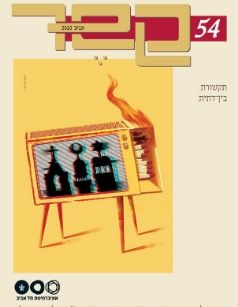פרסומים
Limore Yagil, René Bousquet: L’énigme d’un fonctionnaire républicain sous l’Occupation (1940-1944)
(רנה בוסקה: האניגמה של פקיד מדיני תחת הכיבוש, 1940-1944)

לימור יגיל מלמדת באוניברסיטת פריז ארבע-סורבון Paris-Iv-Sorbonne university, Centre Roland -Mousnier CNRS-UMR 859)), וגם עמיתת מחקר במכון ארנולד וליאונה פינקלר לחקר השואה באוניברסיטת בר אילן. כמו כן, חוקרת במרכז השל (Heschel) ליחסי נוצרים-יהודים באוניברסיטה הקתולית של לובלין.
Cachiporras contra Tacuara: grupos de autodefensa judíos en América de Sur, 1960-1975 (Sudamericana, 2023)
בעקבות חטיפתו של פושע המלחמה הנאצי, אדולף אייכמן, במאי 1960 בבואנוס איירס, התעורר גל אלים של אנטישמיות בדרום אמריקה. בתגובה הקימו הקהילות היהודיות שם קבוצות להגנה-עצמית. קבוצות אלה, שהורכבו בעיקר מצעירים חברי תנועות הנוער הציוניות, עברו אימונים בקרב-מגע, אך גם לאימונים בנשק קר וחם. שגרירויות ישראל, שליחי התנועות הקיבוציות, עובדי הסוכנות היהודית וסוכני המוסד, כולם היו מעורבים במידה כזו או אחרת בארגוני "המסגרת" האלה. הספר ראה תחילה אור באנגלית, תחת הכותרת Jewish Self Defense in South America: Facing Anti-Semitism with a Club in Hand (Routledge, 2022), ועתה הופיעה המהדורה בספרדית בבואנוס איירס.
Politics of Memory and War From Russia to the Middle East
Edited by: Angelos Giannakopoulos
Trusted Partners: 30 Years of India Israel Diplomatic Relations
Edited by: Pramit Pal Chaudhuri and Raanan Rein
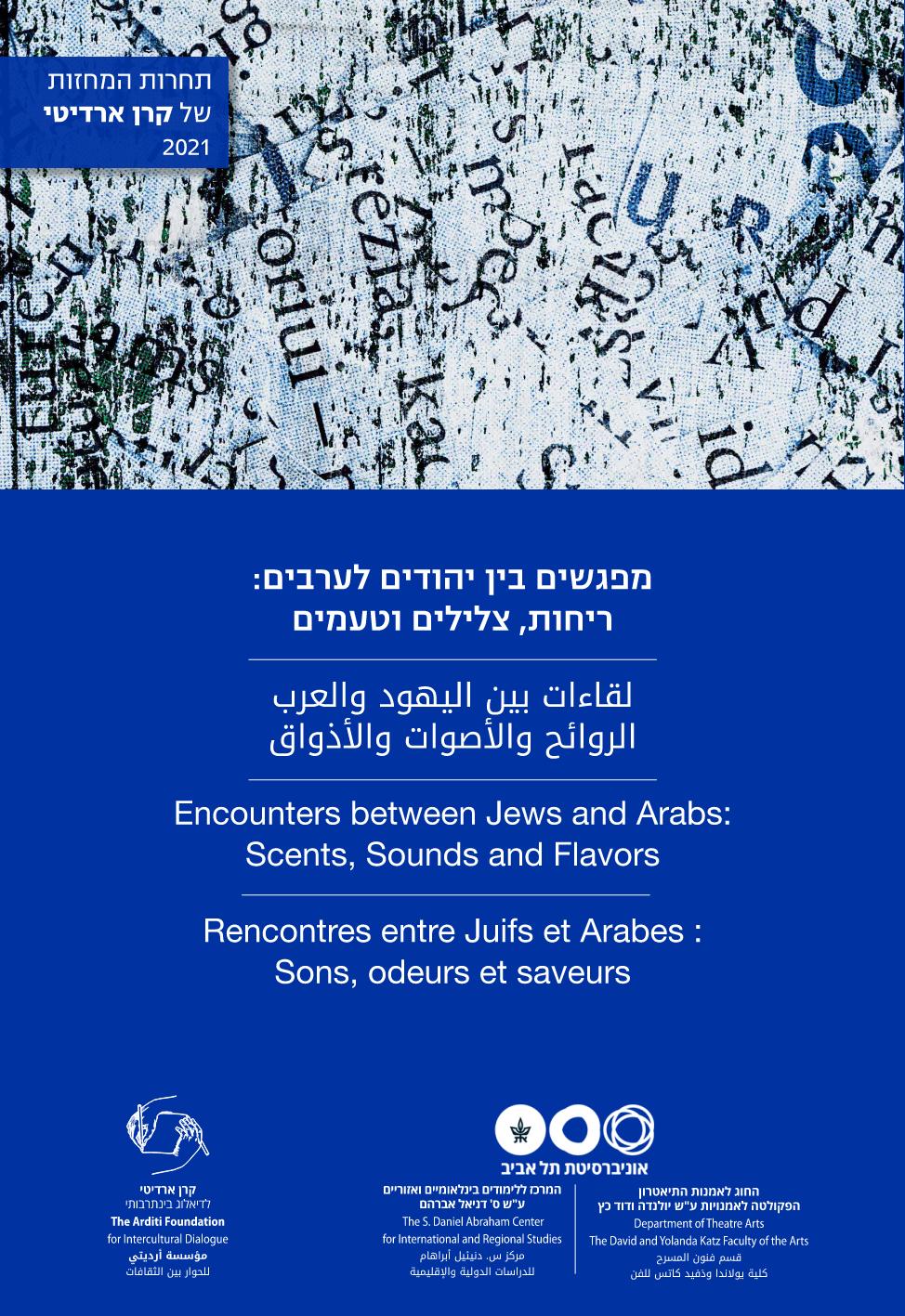 תחרות המחזות של קרן ארדיטי 2021
תחרות המחזות של קרן ארדיטי 2021
מפגשים בין יהודים לערבים: ריחות, צלילים וטעמים
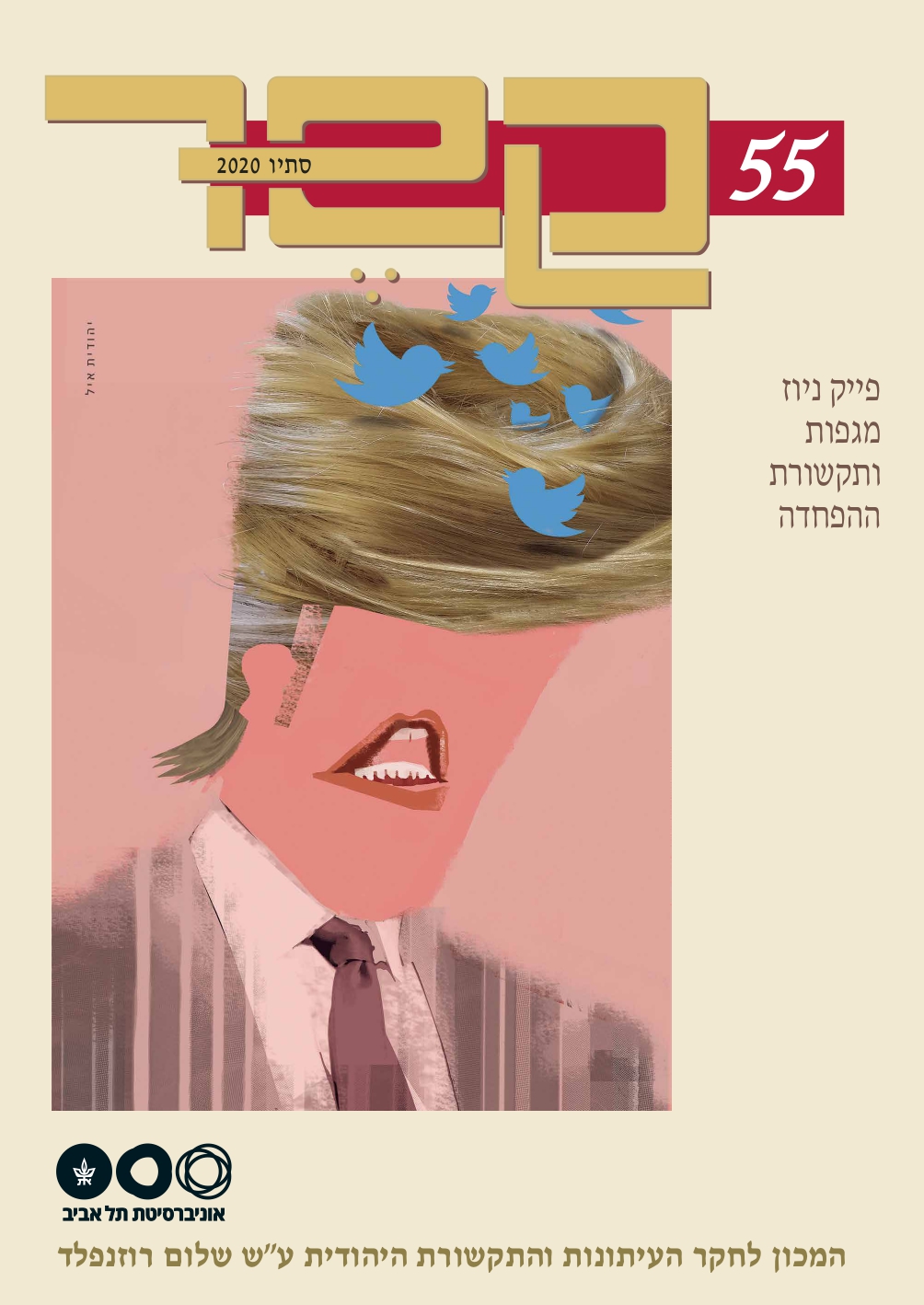
"קשר" 55 | סתיו 2020
עורך: גדעון קוץ
פייק ניוז, מגיפות ותקשורת הפחדה
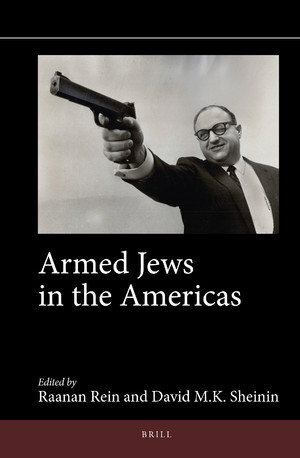
Armed Jews in the Americas
Series: Jewish Latin America,
Volume: 13
Editors: Raanan Rein and David M.K. Sheinin
A Jewish weapons manufacturer during the American Civil War, a Jewish-Canadian chair of the Metropolitan Toronto Police Board, and Jewish-Argentine guerrilla fighters—these are some of the individuals discussed in this first-of-its-kind volume. It brings together some of the best new works on armed Jews in the Americas. Links between Jews and their ties to weapons are addressed through multiple cultural, political, social, and ideological contexts, thus breaking down longstanding, stilted myths in many societies about Jews and weaponry. Anti-Semitism and Jewish self-defense, Jewish volunteers in the Spanish Civil War and in the 1948 Arab-Israeli war, and Jewish-American gangsters as ethnic heroes form part of the little-researched topic of Jews and arms in the Americas.
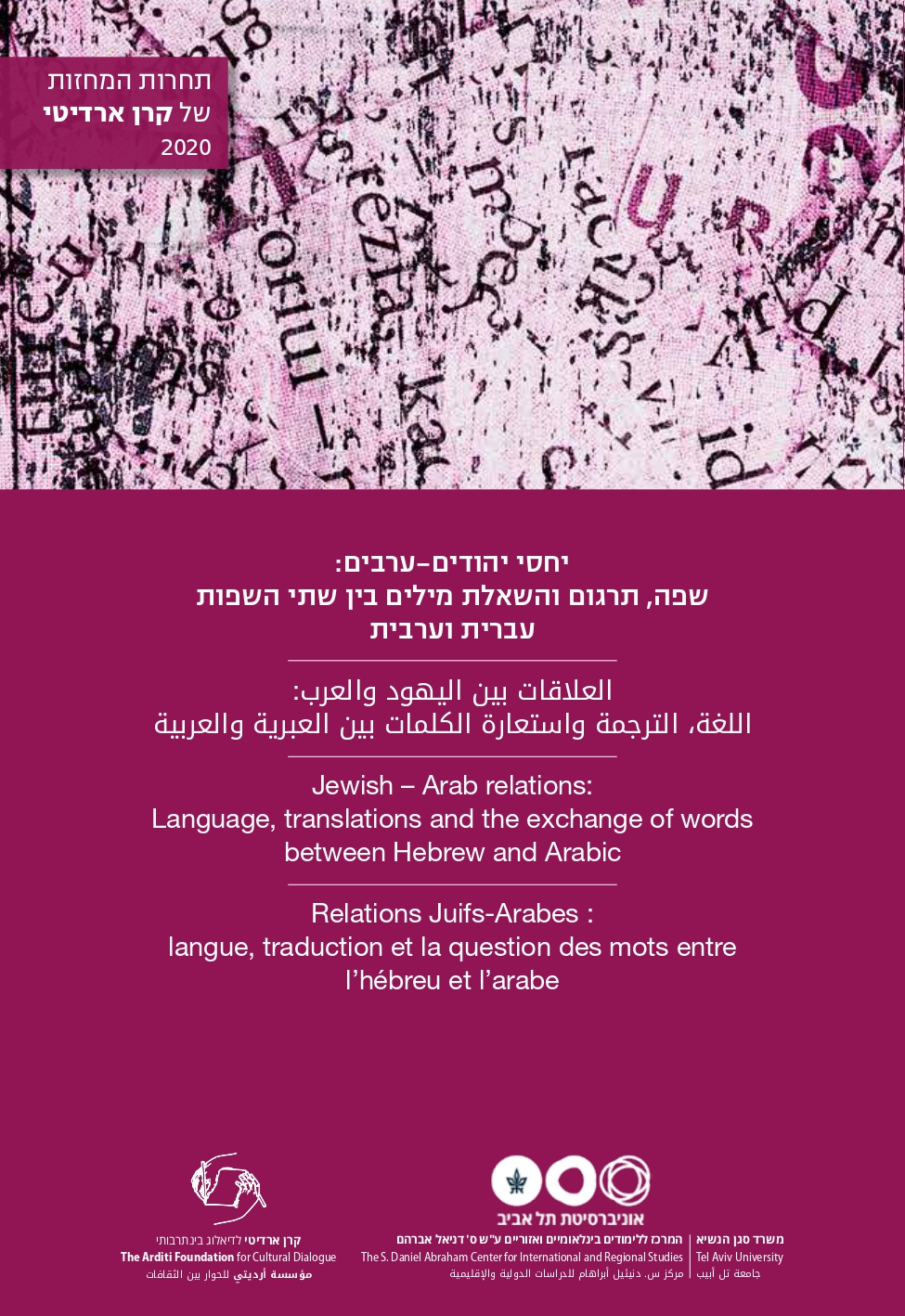 יחסי יהודים–ערבים: שפה, תרגום והשאלת מילים בין שתי השפות עברית וערבית
יחסי יהודים–ערבים: שפה, תרגום והשאלת מילים בין שתי השפות עברית וערבית
המחזות הזוכים בתחרות המחזות של קרן ארדיטי 2020
אוניברסיטת תל אביב ןקרן ארדיטי לדיאלוג בינתרבותי, 2020
יחסי יהודים–ערבים: שפה, תרגום והשאלת מילים בין שתי השפות עברית וערבית
العلاقات بين اليهود والعرب: اللغة، الترجمة واستعارة الكلمات بين العبرية والعربية
Jewish – Arab relations: Language, translations and the exchange of words between Hebrew and Arabic
Relations Juifs-Arabes: langue, traduction et la question des mots entre l’hébreu et l’arabe
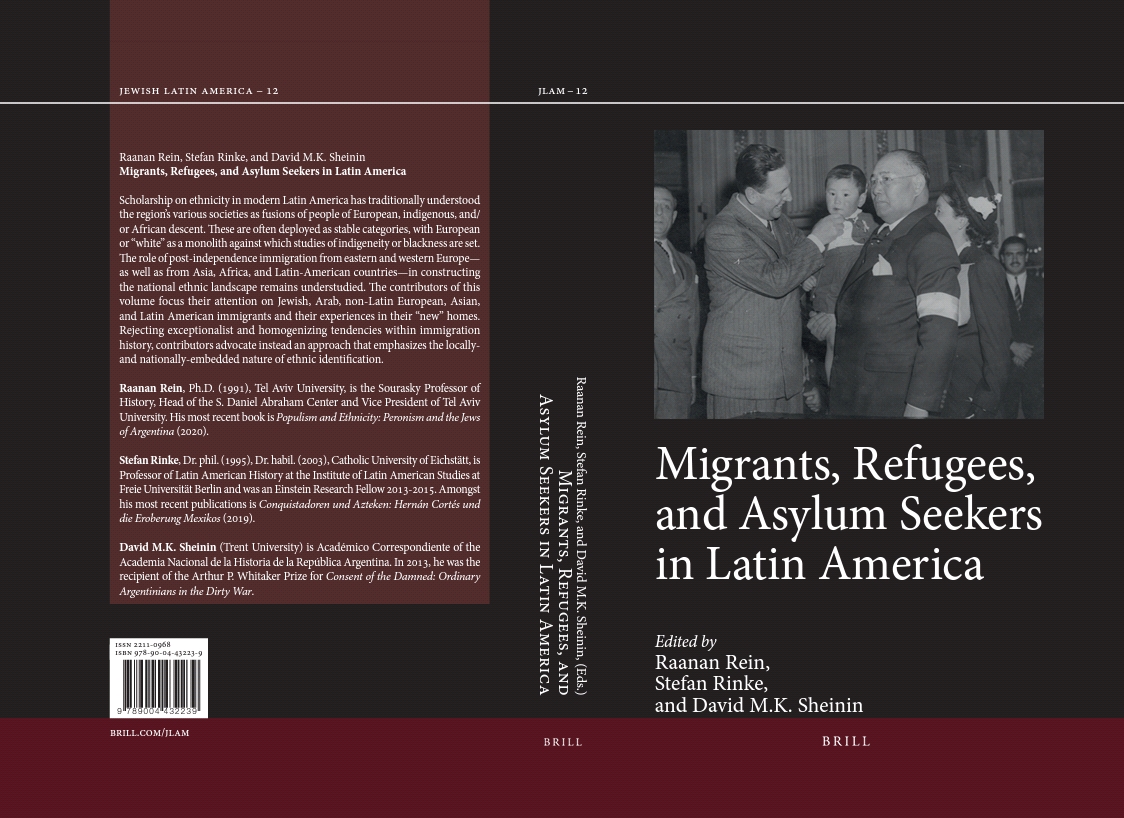 Migrants, Refugees, and Asylum Seekers in Latin America
Migrants, Refugees, and Asylum Seekers in Latin America
Editors: Raanan Rein, Stefan Rinke and David M.K. Sheinin
Scholarship on ethnicity in modern Latin America has traditionally understood the region’s various societies as fusions of people of European, indigenous, and/or African descent. These are often deployed as stable categories, with European or “white” as a monolith against which studies of indigeneity or blackness are set. The role of post-independence immigration from eastern and western Europe—as well as from Asia, Africa, and Latin-American countries—in constructing the national ethnic landscape remains understudied. The contributors of this volume focus their attention on Jewish, Arab, non-Latin European, Asian, and Latin American immigrants and their experiences in their “new” homes. Rejecting exceptionalist and homogenizing tendencies within immigration history, contributors advocate instead an approach that emphasizes the locally- and nationally-embedded nature of ethnic identification.
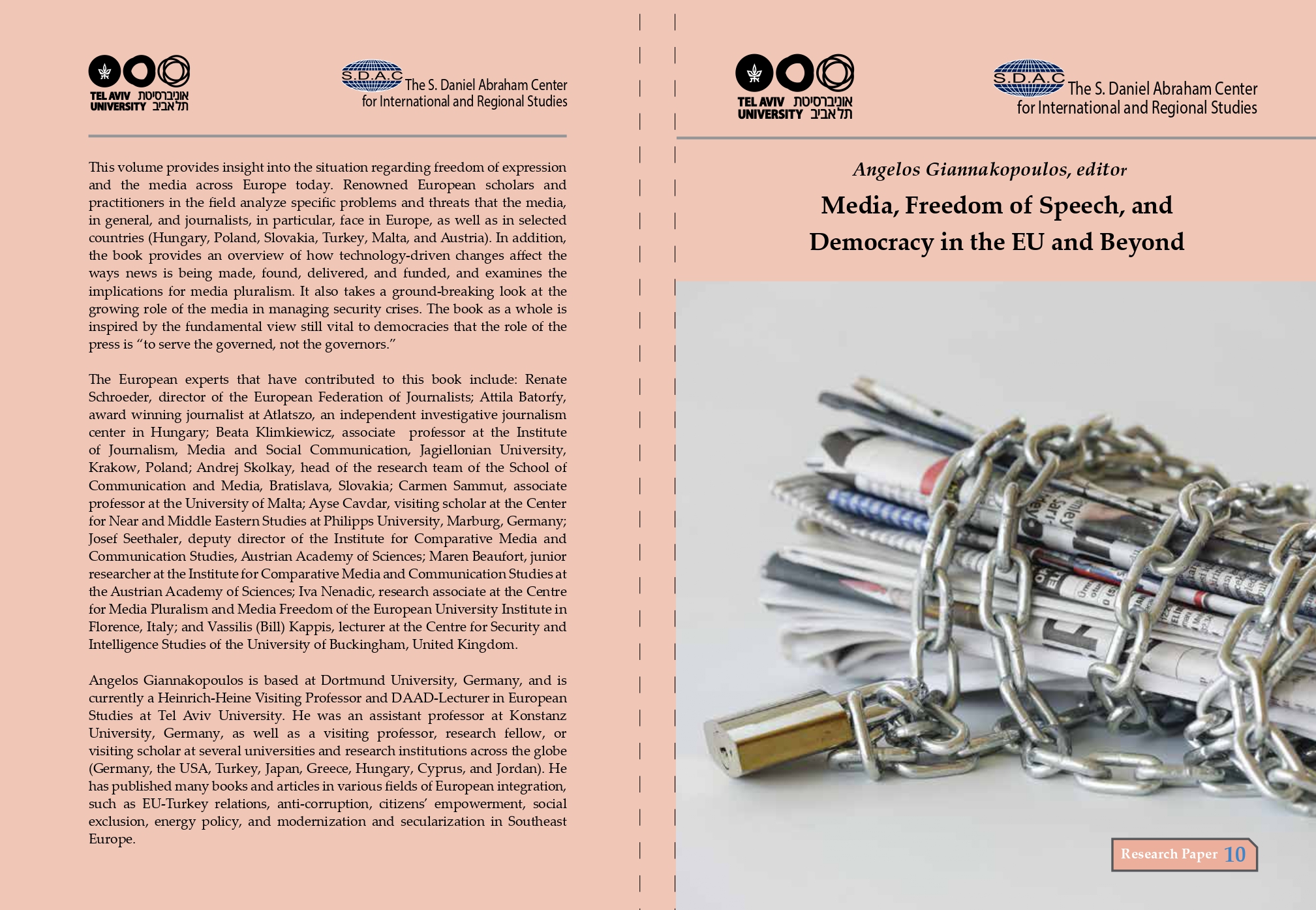 Media, Freedom of Speech, and Democracy in the EU and Beyond
Media, Freedom of Speech, and Democracy in the EU and Beyond
Editor: Angelos Giannakopoulos
This volume provides insight into the situation regarding freedom of expression
and the media across Europe today. Renowned European scholars and
practitioners in the field analyze specific problems and threats that the media,
in general, and journalists, in particular, face in Europe, as well as in selected
countries (Hungary, Poland, Slovakia, Turkey, Malta, and Austria). In addition,
the book provides an overview of how technology-driven changes affect the
ways news is being made, found, delivered, and funded, and examines the
implications for media pluralism. It also takes a ground-breaking look at the
growing role of the media in managing security crises. The book as a whole is
inspired by the fundamental view still vital to democracies that the role of the
press is “to serve the governed, not the governors.”
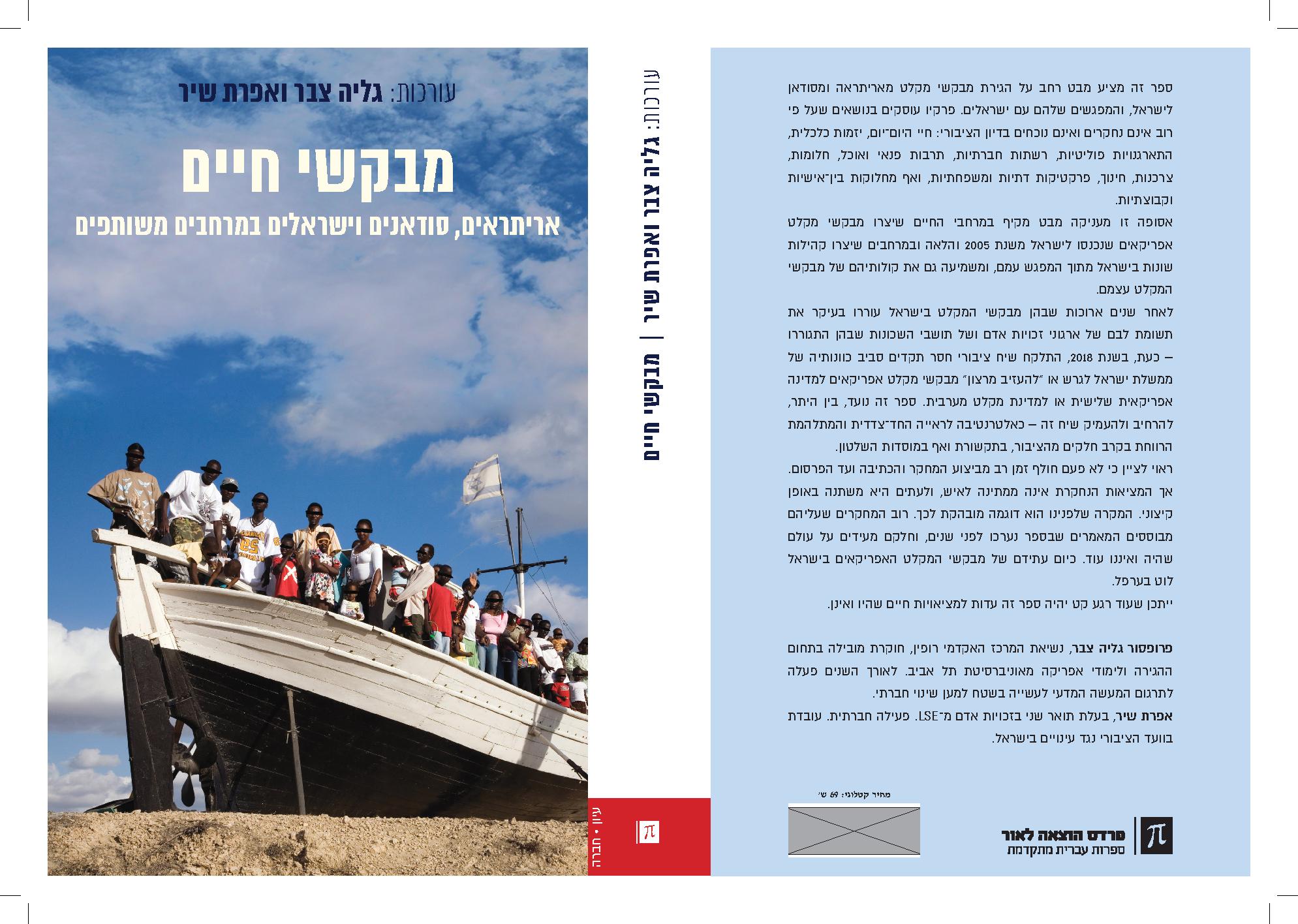 מבקשי חיים: אריתראים, סודאנים וישראלים במרחבים משותפים
מבקשי חיים: אריתראים, סודאנים וישראלים במרחבים משותפים
עורכות: גליה צבר ואפרת שיר
המסע האחר: יהודי אתיופיה וחלקם במאבק המהפכני של אתיופיה בשנים 1991-1974
מחבר: דוד רטנר
Executive Summary: Israel and Africa – A New Push and Tu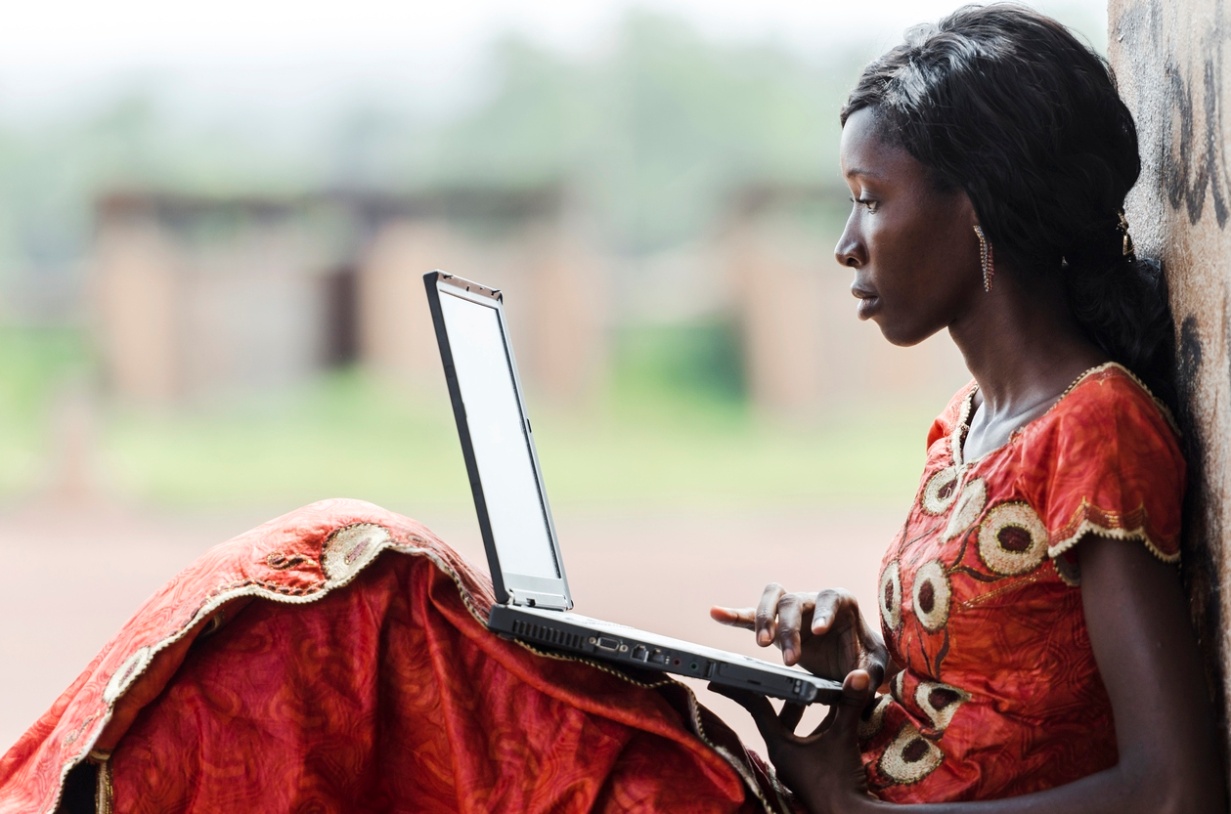 rn?
rn?
Inaugural Africa-Israel Forum:
Tel Aviv University – 13th December 2017
Spain Year Zero
Editors: Raanan Rein and Joan María Thomás
The book reevaluates long-held assumptions about the conflict, such as the unity of the Nationalist camp or the different trajectories of women in the two camps. Particular attention is paid to the international dimension of the war, the book tackling not just well-known players such as Germany, Italy, France and the USSR, but also those that have received short shrift, such as Argentina, Japan and Portugal. In short, Spain 1936:Year Zero offers new research, new topics and new ideas on the early months of the Civil War, revealing in the process that, despite the profusion of books on the subject, Spain’s paramount tragedy of the 20th centuy continues to merit further research and reflection
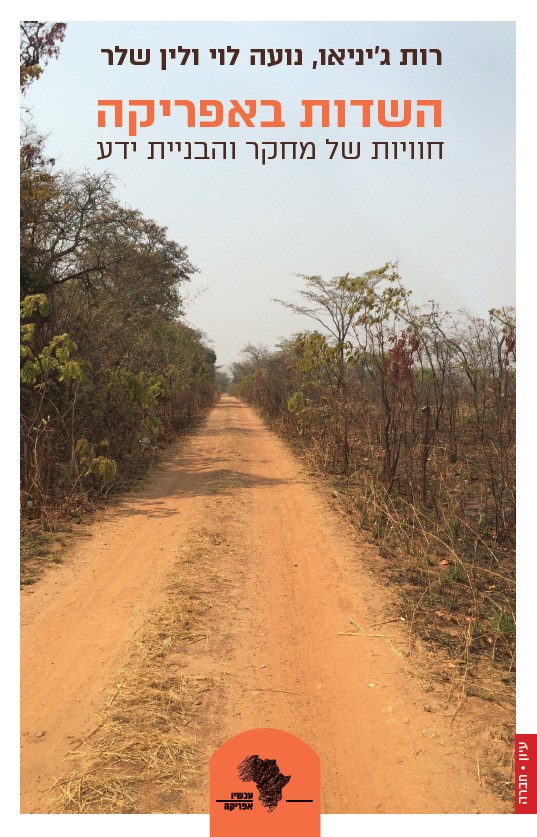
השדות באפריקה : חוויות של מחקר והבניית ידע
מחבר: רות ג'יניאו, נועה לוי ולין שלר
השדות באפריקה פותח צוהר אל עולמם של חוקרים ישראלים העוסקים בגיבוש ידע אודות אפריקה. האוסף מעלה שאלות בנושא מתודולוגיה, חוויות מהמחקר וסוגיות שונות שעומדות בפני חוקרים ישראלים בתהליך עבודת השדה. המחברים כולם פונים ליבשת כתחום ידע, ותרומותיהם השונות משקפות גיוון דיסציפלינארי, גיאוגרפי ועִתִּי עצום. מקום המפגש בין המאמרים השונים הוא השאיפה המשותפת לתרום למחקר מושכל על “אפריקה”. ספר זה מציע תובנות על המורכבויות, הדילמות והחוויות שמאפיינות את תהליך הבניית הידע על היבשת כיום. פירות המחקרים תורמים להבנת העולם כולו ומאתגרים את הנחות היסוד של דיסציפלינות רבות, כמו היסטוריה, אמנות, לימודי דתות, פילוסופיה, סוציולוגיה ומדעי המדינה.
Solidarity in the European Union: Challenges and Perspectives
Editedor: Angelos Giannakopoulos
Against the background of the EU’s multifaceted crisis, i.e. financial and refugee crises, the growing security threat, Brexit, the deterioration of state of law in some member states, the growing gap between citizens and political elites, the political radicalization of an increasing number of citizens, etc. this book purports to reassess the social, legal, economic and moral dimensions of solidarity in the EU. The discussion on the challenges solidarity as the leading principle of EU integration currently faces focuses on fundamental questions vis-à-vis EU integration such as: are the EU’s integration and crisis management capacities already exhausted, has European integration reached its limits or will the EU be finally in the position to fully put into practice and further enhance solidarity, and hence, integration?
The book brings together the contributions of the following internationally renowned scholars and experts in the field: Alfred Tovias, Professor Emeritus, Department of International Relations, Hebrew University, Alberto Spektorowski, Professor of Political Science at Tel Aviv University and Karen Umansky, PhD candidate in the Department of Public Policy at Tel Aviv University, Christal Morehouse, Senior Program Officer of the Open Society Foundation and Yann-Sven Rittelmeyer, policy analyst at the European Policy Centre (EPC) in Brussels, Denis MacShane, Europe minister as well as deputy foreign secretary in Tony Blair’s government, Deniz Senol Sert, Associate Professor, Department of International Relations, Ozyegin University, Istanbul and Fulya Felicity Türkmen, Assistant at Ozyegin University, Istanbul, Hartwig Hummel, Professor of European Politics and International Relations at Heinrich Heine University in Düsseldorf, Germany, Kyriakos Filinis, postdoctoral research fellow at the Crisis Observatory of the Hellenic Foundation for European and Foreign Policy (ELIAMEP), Vassilis Kappis, Lecturer at the Centre for Security and Intelligence Studies of the University of Buckingham, United Kingdom.
The Emergence of the Modern Middle East
Authors: Asher Susser and Duygu Atlas
This book discusses the emergence of the modern Middle East from the fall of the Ottoman Empire, at the end of the First World War to the present. It discribes the Ottoman legacy in the region and the Western imperial impact on the creation of the Arab state system. The book discusses the rise and retreat of Arab nationalism, the problems of internal cohesion of the Arab states, issues of religion and state, and the evolution of Islamist politics. It also focuses on the evolution of the Arab-Israeli conflict and its impact on the region and will conclude with an in depth analysis of the “Arab Spring” by placing these contemporary revolutionary events in their historical context.
The New Ethnic Studies in Latin America
Edited by Raanan Rein, Stefan Rinke, and Nadia Zysman
The New Ethnic Studies in Latin America aims at going beyond and against much of Jewish Latin American historiography, situating Jewish-Latin Americans in the larger multi-ethnic context of their countries. Senior and junior scholars from various countries joined together to challenge commonly held assumptions, accepted ideas, and stable categories about ethnicity in Latin America in general and Jewish experiences on this continent in particular.
This volume brings to the discussions on Jewish life in Latin America less heard voices of women, non-affiliated Jews, and intellectuals. Community institutions are not at center stage, conflicts and tensions are brought to the fore, and a multitude of voices pushes aside images of homogeneity. Authors in this tome look at Jews’ multiple homelands: their country of birth, their country of residence, and their imagined homeland of Zion.
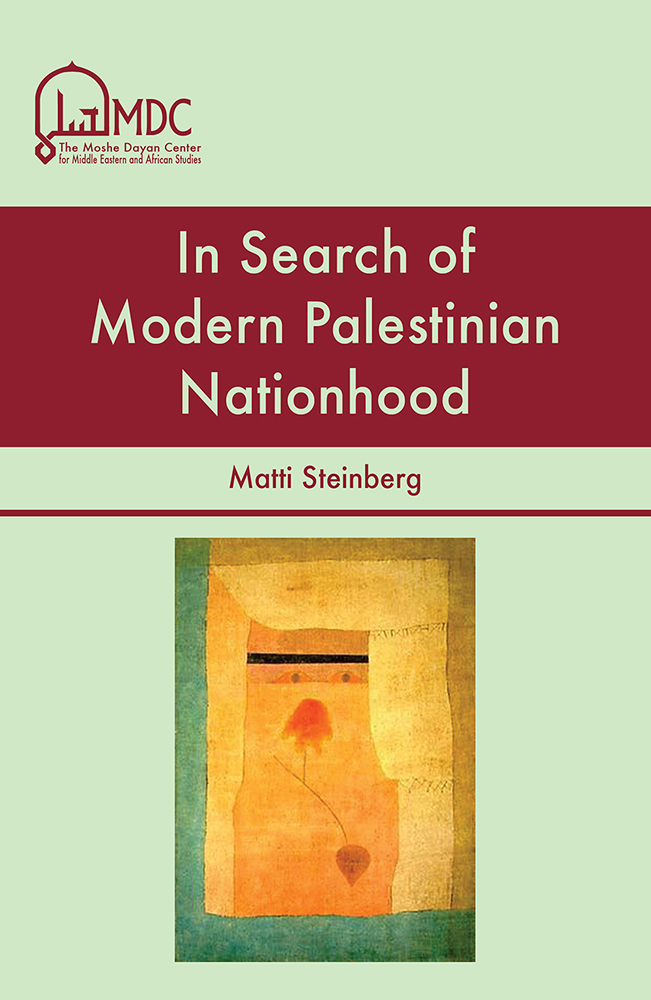 In Search of Modern Palestinian Nationhood
In Search of Modern Palestinian Nationhood
Author: Matti Steinberg
Published by: Moshe Dayan Center and Tel Aviv University Press, 2016, 503 pp.
The simplistic attitude that reduces the various conceptions in the modern Palestinian national thinking into stereotypical dictums, such as "the overall aim of all the Palestinians is to liquidate the state of Israel," instills perhaps a superfluous sense of meaning but it does not accomodate with the development of the historical reality. The reader of this book will find that the Palestinian national attitudes have departed from the original unanimity as far as means and aims are concerned. A discrepancy has emerged between their ideal aspirations and their perceptions of what can be achieved.
Based mainly on primary Arabic sources, this book delves into the cognitive dissonances created since the 1967 War and their bearing on the Palestinans' self-images and on their perceptions vis a vis Israel as the intimate adversary. It shows that in spite of the authenticity of the Palestinian transformations, they might be reversible if they are not acknowledged and responded to by Israel and the international community.
Energy Cooperation and Security in the Eastern Mediterranean:
A Seismic Shift towards Peace or Conflict?
Editor: Angelos Giannakopoulos
The Eastern Mediterranean and the Middle East have increasingly become a primary focus of interest both in Europe as well as in the global arena. Recent developments in the field of energy following the discovery of significant hydrocarbon reserves in the Eastern Mediterranean have bolstered the importance of this sub-region as a factor to be reckoned with in terms of a new balance of power in the Middle East. Against this background, the volume at hand analyzes the conditions under which energy reserves in the Eastern Mediterranean could serve to boost cooperation and peace or, on the contrary, would further complicate existing conflicts. Special emphasis is placed on the significance of these developments for European energy security and the effect on the relationship of the countries of this region to the European Union.
This volume brings together the contributions of internationally renowned scholars and experts in the field: Thanos Dokos, Director-General of ELIAMEP in Athens; Ariel Ezrahi, Energy Adviser at the Office of the Quartet Representative (OQR); Tony Blair; Sergio Matalucci, journalist at Natural Gas Europe; Jörn Richert, Professor for Energy Governance at the University of St. Gallen; Simone Tagliapietra, from the Brussels-based think tank Bruegel; Igor Taranic, Researcher at the Centre for European Policy Studies in Brussels; Theodoros Tsakiris, Assistant Professor at the University of Nicosia and member of the Board of Directors of the Cyprus Hydrocarbon Company; Shaul Zemach, former Director General of the Israeli Ministry of National Infrastructure, Energy and Water Resources.
Angelos Giannakopoulos is based at Dortmund University and is currently a Heinrich Heine Visiting Professor and DAAD Lecturer in European Studies at Tel Aviv University. He is internationally active in teaching and research and has headed two major EU-funded projects on corruption and citizenship in Europe. He has been a visiting professor and research fellow at several universities and research institutions in the USA, Japan, Turkey, Hungary, and Cyprus. He has published many books and articles on various fields of European integration, sociology of culture and knowledge, anti-corruption, citizens’ empowerment, etc.
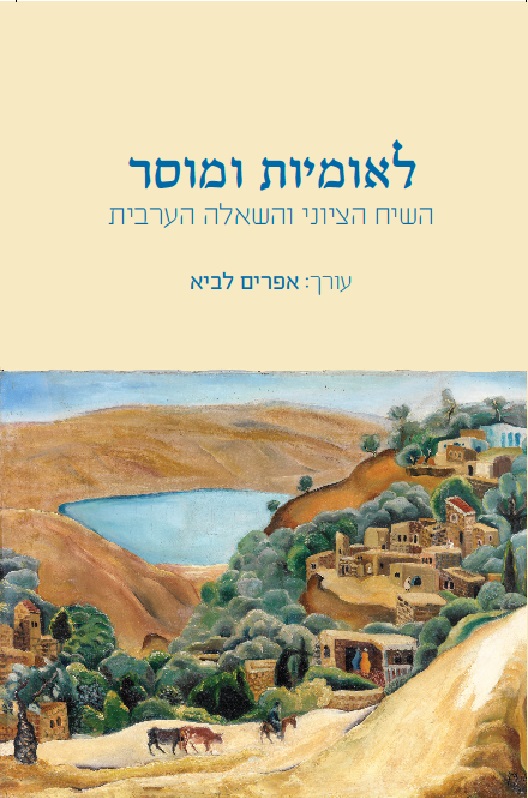 לאומיות ומוסר: השיח הציוני והשאלה הערבית
לאומיות ומוסר: השיח הציוני והשאלה הערבית
עורך: אפרים לביא
מרכז תמי שטינמץ למחקרי שלום בשיתוף עם מרכז דניאל אברהם ללימודים בינלאומיים ואזוריים
הוצאת כרמל, 2014, 368 עמודים.
נפיצותה של האתנו-לאומיות היא מסימני המודרניות. זוהי נפיצות תרתי-משמע, שכן האתנו-לאומיות נפוצה בה-במידה שהיא נפיצה, שכיחה ומתוחה בעת ובעונה אחת. אף כי הורתה בעידן הנאורות, בבקשת הדעת והחירות האנושית, נכרכה הלאומיות באלימות כמעט מראשיתה. מלחמות נפוליאון ומלחמות העולם, רציחות-עמים ואפליה גזענית – זוועות אלה ואחרות יוחסו ללאומיות בכלל ולגרסתה האתנית בפרט. מבשריה ונושאי-דגלה של הלאומיות לא התחמקו מתשובה; ההיסטוריה של האומה היא גם ההיסטוריה של השיח המוסרי הלאומי, שיח ציבורי שחרג מכותלי מגדל-השן, וביקש לברר את הטוב והרע שבבניין אומה ומדינה.
שיח זה חל אף על המפעל הציוני. מאה שנים לאחר "אביב העמים" נוסדה מדינת היהודים והציבה אתגר עדכני, סבוך מתמיד, לאתיקה של האתנו-לאומיות. המקרה הציוני והסכסוך היהודי-ערבי היו למוקדים של שיח מוסרי חדש-ישן. האם ישנו עם יהודי? האם מצוצדקת מדינת היהודים ומדיניותה? שאלות אלה היו לשדה-הקרב, לשדה-השיח, המוסרי המרכזי בבירור הלגיטימציה של האתנו-לאומיות בשלהי העידן המודרני.
צחצוחי-המילים, בלב מחול החרבות והחרדות של הסכסוך היהודי-ערבי, יכריעו לשבט או לחסד את עתידה של האתנו-לאומיות בעולם כולו. ההגות הציונית מכילה עד להתפקע את המתח בין האוניברסלי לפרטיקולארי, בין ליברליזם סוציאל-דמוקרטי לאתנו-לאומיות יהודית. הדבר נעשה, לעתים קרובות, מתוך מודעות עצמית גבוהה לגודל השעה ולכובד הקושיה.
בקובץ זה מכונסים דבריהם של 15 מבכירי החוקרים בישראל מדיסציפלינות שונות. חוקרים אלה התחקו אחר השיח המוסרי בזרם המרכזי של הציונות ובציונות הדתית בשאלה הערבית. הם דנו בגלגוליו ורבדיו של שיח זה, בניסיון לפענח את התמורות שחלו בו ולסרטט את דיוקנם והגותם של העושים במלאכתו: מנהיגים והוגים, סופרים ויוצרים.
עורך הקובץ, (אל"מ מיל.) ד"ר אפרים לביא, הוא מנהל מרכז תמי שטינמץ למחקרי שלום ועמית מחקר במרכז משה דיין ללימודי המזרח-התיכון ואפריקה באוניברסיטת תל-אביב.
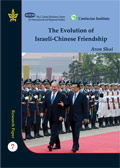 The Evolution of Israeli-Chinese Friendship
The Evolution of Israeli-Chinese Friendship
Author: Aron Shai
Published by: The S. Daniel Abraham Center for International and Regional Studies and Confucius Institue, 2014, 64 pp.
The study of China, Chinese literature, language, philosophy, history, geography and culture at Tel Aviv University is most impressive. It is conducted at the Department of East Asian Studies, the Confucius Institute, the faculty of Business Administration and at various other departments.
Many of our students go to China annually to improve their knowledge of this unique country and its people and an increased number of Chinese scholars come to the University regularly and are being exposed to a variety of disciplines taught and researched here, be it nanotechnology, engineering, medicine, the Hebrew language, Jewish culture, conflict resolution etc. But, as the present study shows, the various aspects related to Sino-Israeli relations are manifold and encompass a wide range of issues in additionto the mere academic. Indeed, the two countries are at the beginning of a newera of prolific and fruitful relations, relations between two of the greatest old civilizations.
I should like to thank my colleagues at the Confucius Institute, the Department of East Asian Studies, The S. Daniel Abraham Center for International and Regional Studies (SDAC) and the Institute for National Security Studies (INSS) for affording me the opportunity to pursue my research in their most congenial company. I am also indebted to Prof. Raanan Rein, the Director of SDAC, who carefully read the manuscript and suggested useful corrections and additions, to my research assistant Ms. Or Biron for her professional work and help and to Mrs. Shulamit Berman for reading and editing the manuscript.
This is a new and updated edition of an earlier version entitled, Sino-Israeli Relations: Current Reality and Future Prospects, published by the INSS in 2009.
Aron Shai
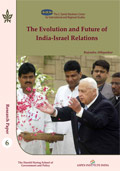
The Evolution and Future of India - Israel Relations
Author: Rajendra Abhyankar
Published by: The S. Daniel Abraham Center for International and Regional Studies, 2012, 48 pp.
2012 will mark the 20th anniversary of the establishment of full diplomatic relations between India and Israel. The visit of Indian External Affair Minister Mr. S.M.Krishna to Tel Aviv from January 8 to 11. 2012 underlined the importance the two countries attach to this event. Although the birth pangs of this relationship were painful, it has metaphorically become a strapping young lad ready for a great future. This Paper will aim to trace the history of this relationship and forecast its future trajectory.
The thesis in the Paper is that besides the changes in the global economic and political environment after the Cold War, the fact that India’s neighbourhood had become increasingly dangerous dictated that defence and security issues, and indeed supplies, became and remained the fulcrum of the relationship for the decade of the 90’s. It was only in the second decade that the relationship expanded toinclude trade, industry, information and hi-tech technology, investment and people-to-people contact.
Thus in contrast to the fallow decades since the Independence of the two countries, the last almost 20 years have seen an explosive growth in the diversity of contact between the two countries. By developing an intrinsic worth to the relationship based on the natural talents of the two peoples, its future appears assured divorced from the ups and downs of their political and security imperatives. An evocative indication that the bilateral relationship has sufficiently matured to come out of the closet was the agreement during the recent Krishna visit to Tel Aviv for setting up an Israeli Consulate General in Bengaluru.
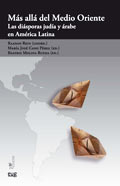
Más allá del Medio Oriente Las Diásporas judía y árabe en América Latina
Authors:Raanan Rein, María José Cano Pérez, Beatriz Molina Rueda
Published by: Editorial Universidad de Granada, 2012, 351 pp.
Más allá del Medio Oriente. Las diasporas judía y árabe en América Latina broadens our understanding of Latin American societies in which mainstream study continues to be marred by the scant attention paid to ethnicity as a significant analytical category by a substantial number of scholars of the region. The volume equally expands the work of intellectuals such as Rodrigo Cánovas, Christina Civantos, Ottmar Ette and Friederike Pannewick, Erin Graff Zivin, Ignacio Klich, Ignacio López-Calvo, Jeffrey Lesser, Daniel Masterson and Sayaka Funada-Classen, Brinda J. Mehta and Ranaan Rein.
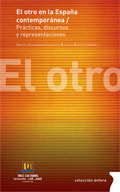 El otro en la España contemporánea: Prácticas, discursos y representaciones
El otro en la España contemporánea: Prácticas, discursos y representaciones
Author: Raanan Rein
Published by: Tres Culturas, 2011, 434 pp.
discurso sobre el otro -entendido como una nueva toma de conciencia de los mecanismos de poder, en cuanto a la discriminación por razones de género, etnia, raza, credo, clase y sexualidad- llega a un punto de inflexión en los años 60, cuando hacen implosión en el espacio público diferentes movimientos de protesta. No obstante, en la década de los 60 y principios de los 70, la España del estado de excepción, del desarrollismo económico y de la emigración se mantendrá relativamente ajena a estos nuevos posicionamientos. El país es telón de fondo de una dictadura decrépita que aún pretende someter a la sociedad española a un proceso interminable de hibernación intelectual e ideológica.
Será con la transición y la consolidación democrática -momento en el que cobran legitimación oficial las diversidades nacionales, culturales y lingüísticas- cuando se comiencen a indagar libremente aquellas identidades que no responden a los cánones establecidos por el imaginario del nacionalcatolicismo. A partir de 1978 España expresará públicamente su carácter plurinacional y multicultural. La nueva España democrática y europeísta pasará a convertirse en foco receptor de flujos migratorios. Esto hará replantear el concepto de ciudadanía y traerá aparejado complejos desafíos que desbordarán los viejos prejuicios que otrora acompañaron a judíos, musulmanes y gitanos.
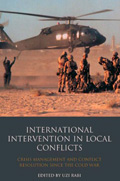 International Intervention in Local Conflicts: Crisis Management and Conflict Resolution Since the Cold War
International Intervention in Local Conflicts: Crisis Management and Conflict Resolution Since the Cold War
Author: Uzi Rabi
Published by: Tauris Academic Studies, 2010, 336 pp.
The changes in the global balance of power that emerged following the Cold War have had far-reaching implications for the conduct, management and resolution of local conflicts. They have necessitated a fresh examination of the rules and norms of international crisis management and conflict resolution at a global level. This book provides analyses of international intervention in local conflicts including those in Cambodia, Somalia, Yugoslavia, the Western Balkans and Northern Ireland. Special attention is devoted to American and European involvement in Middle East conflicts, as well as the unique role of regional and local actors in determining their course. This will be an invaluable resource for students and scholars of international relations and conflict resolution.
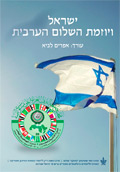
ישראל ויוזמת השלום הערבית
עורך: אפרים לביא
הוצאת מרכז תמי שטינמץ למחקרי שלום בשיתוף עם מרכז דניאל אברהם ללימודים בינלאומיים ואזוריים, 2010, 174 עמודים.
יוזמת השלום הערבית ממארס 2002 מהווה שינוי היסטורי בעמדת הערבים כלפי ישראל. ביסודה היא עידוד ותמריץ המכוּוָן להניע את ישראל להגיע להסדרי שלום עם שכניה הפלסטינים, הסורים והלבנונים, שבעקבותיהם תזכה להכרה מצד העולם הערבי וליחסי שלום עִמו. היוזמה נעשתה, לצד החלטות האו"ם, למקור התייחסות של הקהילה הבינלאומית בכל הקשור ליישוב הסכסוך הישראלי-ערבי. חתירתה של איראן להיות מעצמה גרעינית והתגברות השפעתה בלבנון וברשות הפלסטינית, הביאו את המנהיגים הערבים לנסות לגבש חזית לשם בלימת חדירתה לאזור. המנהיגים האמינו שזהו גם אינטרס ישראלי ולפיכך ייחסו חשיבות לקידום הערוצים הבילטראליים שיביאו לפתרון הסכסוך בין ישראל לבין שכניה. תגובתה הצוננת של ישראל ליוזמה הערבית והחשיבות המועטה שייחס לה ממשל הנשיא ג'ורג' בוש, לא תרמו להתקדמות במסגרתה.
יוזמת השלום הערבית עודנה "מונחת על השולחן", אך נדמה כי ערכה בעיני חברות הליגה הערבית מתכרסם והולך בהיעדר התקדמות מדינית, וככל שאיראן מתקרבת ליכולת גרעינית. מנהיגי ערב עודם מקווים שישראל תקדם את התהליכים המדיניים עם שכניה ושהממשל האמריקני יאמץ את היוזמה כאבן ראשה במדיניותו באזור, לבלימת איראן והשחקנים הלא-מדינתיים, חיזבאללה וחמאס, הנתמכים על-ידה. בשיח הציבורי והאקדמי בישראל חלוקות הדעות לגבי מהותה ותוכנה של יוזמת השלום הערבית. רוב החוקרים והפרשנים תמימי דעים כי היוזמה היא שיאו של תהליך היסטורי שהביא להיווצרותו של קונסנזוס כלל-ערבי הקורא להגיע לשלום מלא עם ישראל, אך לא מעטים מעלים ספקות לגבי כנות כוונותיהם של הערבים.
בקובץ זה מובאים מאמריהם של עשרה מבכירי החוקרים בישראל מדיסציפלינות שונות, שניתחו והאירו את יוזמת השלום הערבית מנקודת מבטם המקצועית והביאו לכלל ביטוי את עמדתם בשאלות השנויות במחלוקת בשיח הישראלי על אודותיה.
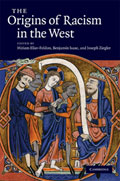
The Origins of Racism in the West
Authors: Miriam Eliav-Feldon Benjamin Isaac Joseph Ziegler
Published by: Cambridge University Press, 2013, 348 pp.
Is it possible to speak of western racism before the eighteenth century? The term 'racism' is normally only associated with theories, which first appeared in the eighteenth century, about inherent biological differences that made one group superior to another. Here, however, leading historians argue that racism can be traced back to the attitudes of the ancient Greeks to their Persian enemies and that it was adopted, adjusted and re-formulated by Europeans right through until the dawn of the Enlightenment.
From Greek teachings on environmental determinism and heredity, through medieval concepts of physiognomy, down to the crystallization of attitudes to Indians, Blacks, Jews and Gypsies in the early modern era, they analyse the various routes by which racist ideas travelled before maturing into murderous ideologies in the modern western world. In so doing this book offers a major reassessment of the place of racism in pre-modern European thought.
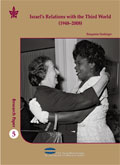
Israel’s Relations with the Third World (1948–2008)
Author: Benyamin Neuberger
Published by: The S. Daniel Abraham Center for International & Regional Studies, 2009, 46 pp.
Israel's relations with the countries of Africa, Asia and Latin America are an exceedingly accurate barometer of the shifts in Israel's global position, priorities, policies and self-perceptions since its inception over sixty years ago. If in the first two decades of its existence it viewed itself as an integral part of the post-war world (combining aspirations for political legitimacy and economic betterment with a concern for the challenges of emerging societies elsewhere), in the second phase of the 1970s and 1980s, it consciously tied itself more closely to the West not only politically and economically, but also culturally. In the last two decades Israel's initial global outreach has been replaced by a far more selective, utilitarian approach—a product of both its economic achievements and its growing misgivings regarding major currents in the contemporary world.
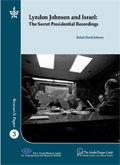
Lyndon Johnson and Israel: The Secret Presidential Recordings
Author: Robert David Johnson
Published by: The S. Daniel Abraham Center for International and Regional Studies and The Moshe Dayan Center for Middle Eastern and African Studies
There is a common tendency among both professional historians and the general public to project back the dominant patterns of the present. America's relationship with Israel is an excellent case in point. It is perceived as a close, intimate relationship, an alliance between a superpower and a kindred, small state in one of the world's most problematic regions. Terms such as "special relationship" and "commitment" are often employed to describe it. It is commonly assumed that this has always been the case. President Truman's Administration recognized the new state of Israel minutes after its declaration of independence. It is quite easy to draw a direct, continuous line from May 1948 to President Bush's powerful speech in the Knesset sixty years later during a visit designed to underscore his personal and America's strong friendship with Israel as the latter was celebrating its 60 Anniversary. But a closer look reveals a much more complex reality.
President Truman's recognition of Israel met with a strong opposition by his Secretary of State, George Marshall. During Israel's first decade its relationship with the U.S. was often awkward as the U.S. was trying to come to terms with Arab nationalism in both its moderate and radical versions. It was only in 1958 when President Eisenhower decided to abandon that effort that the construction of a durable strategic partnership with Israel began. John Kennedy's relationship with Israel was complex, Israel's quest for a nuclear option being the single most important compounding issue. Against this backdrop, Lyndon Johnson's role as "The great consolidator" of Washington's relationship with Israel seems all the more prominent. The decisions he took on the eve of the Six Days War and its aftermath had a major, lingering impact. It is fortunate that Professor Robert David Johnson was able to rely on troves of new archival material to illuminate President Johnson's policies in regard to Israel and the Middle East and the fashion in which they were made. Tel-Aviv University through its Daniel S. Abraham Center is privileged to be able to publish this innovative monograph.

מבנה חדש למערכת התכנון בישראל
עורכים: יובל פורטוגלי נורית אלפסי
הוצאת מרכז דניאל אברהם ללימודים בינלאומיים ואזוריים, 2009, 123 עמודים.
העיר היא אחת הישויות המורכבות ביותר שיצר האדם. משחר האנושות חיפש האדם תצורות התיישבות שיספקו הגנה ומחסה ויאפשרו ניהול אורחות חיים תקינים. העיר סיפקה את אחת מהתצורות הללו; היא הייתה ישות שצמחה בעקבות התקבצות קהל רב ומגוון של פרטים שביקש לנהל את אורחות חייו היומיומיים - האישיים, הקבוצתיים, הרוחניים והגשמיים - במסגרת קהילתית שתעניק לו מחסה והגנה הולמים. לאורך ההיסטוריה, בעקבות שינויים חברתיים ופוליטיים ופיתוחים טכנולוגיים שונים, התעדכנו תצורות העיר כך שיתאימו למצבים ותנאים חדשים. בעקבות תהליכים אלו, מתכננים ומעצבי ערים - אורבאניסטים, גיאוגרפים, אדריכלים, כלכלנים, משפטנים, סוציולוגים ואחרים - למדו את השינויים בתצורות העיר על מנת לפתח מתודות יעילות לתכנון ערים. ההנחה הייתה שלמידה של התהליכים שהביאו להיווצרות העיר תאפשר לנסח אופני פעולה שיביאו להקמת ערים חדשות ולפתח ערים קיימות באופן מוצלח יותר. חלק מאותם מתכננים ומעצבים פיתח מתודות תכנון רציונאליות שהושתתו על תפישות אידיאליות של עיר אפלטונית, בה התכנון העירוני נגזר מתוך אידיאל רעיוני שלא תמיד התייחס למציאות הקונקרטית.
גישה זו התבססה על תפישה אוטונומית שהניחה שרציונאל מחשבתי ולאו דווקא מחקר אמפירי של השינויים שחלים בעיר ייצר עיר "נכונה". למרות מוגבלותה, גישה זו חזרה ורווחה לאורך ההיסטוריה האנושית בתקופות שונות: במאות החמש עשרה והשש עשרה גובש רעיון העיר האידיאלית על ידי אדריכלי הרנסנס; במחצית הראשונה של המאה העשרים פתחו אדריכלים ומתכנני ערים מודרניסטים את רעיון העיר הפונקציונאלית. בניגוד לגישה זו, מתכננים ומעצבי ערים אחרים ביקשו לפתח עקרונות תכנון אורגאניים, אשר יתייחסו באופן ישיר לשינויים שחלים בעיר ויכללו אותם כחלק ממתודות התכנון של ערים חדשות ושל פתוח ערים קיימות. גישות אלו ביקשו להתייחס לעיר כישות המארגנת את עצמה ומגיעה לאיזון מתוך הפעולה שלה עצמה. במודל זה, העיר לא תוכננה כמעשה חיצוני למצבים ולתנאים העירוניים הקיימים והמשתנים, התכנון היה חלק אינטגראלי מהמציאות הקיימת.
במחקר שלפניכם פונים נורית אלפסי ויובל פורטוגלי אל הגישה השנייה ומציעים מודל חדשני ומרתק למערכת תכנון אורבאני בישראל מתוך ראייה רחבה ודיון מקיף בדיסציפלינות ובפרקטיקות התכנון האורבאני בישראל ובעולם. תרומתו של המחקר כפולה. ראשית, בדיון ההיסטורי-תיאורטי שהמחקר מציע; תוך כדי פיתוח המודל, אלפסי ופורטוגלי עורכים סקירה של מודלים של תכנון אורבאני בישראל בממד ההיסטורי והתיאורטי שלהם, ובכך תורם לידע על אודות ההיסטוריה של התכנון בארץ ובעולם. שנית, במישור היישומי התרומה של מודל המוצע מתקיימת בשני ממדים: האחד, בהצעה של מודל תכנוני המתקן עיוות היסטורי שהעניק סמכויות כפולות לגופים תכנוניים בערים שונות. והשני, השמתה של תפישת התכנון ממנגנונים המתקיימים כתהליכים שהם top-bottom לתכנון המתבסס על תהליכים -bottom up - מערכת תכנון בארגון עצמי. המודל התכנוני המוצג כאן מציע לתקן את העיוות ההיסטורי על ידי שינוי במבנה ההליך התכנוני והשתתתו על שלוש רשויות נפרדות: רשות המחוקקת חוקי תכנון, רשות המאשרת תוכניות ויוזמות תכנון ורשות ביצועית, הכוללת את גופי הביצוע הציבוריים והפרטיים.
ההפרדה שהמודל עושה בין שלוש הרשויות מבוססת על ההבחנה שבמערכות התכנון האורבאני כיום קיימים תחלואים שונים מאחר ועל גופים מסוימים מוטלות סמכויות כפולות. מצב זה מונע ביקורת על תהליכי התכנון הן על ידי המערכת עצמה והן על ידי גורמים מחוצה לה. עם זאת, המודל מציע לתקן עיוות זה על ידי הפרדה של הרשויות השונות כך שייווצר מגנון שוויוני עבור האזרחים וגורמי השלטון בתהליך החקיקה, קבלת ההחלטות והביצוע של רעיונות תכנוניים. אחת הדרכים המרכזיות לתיקון העיוותים הקיימים שמציע המודל היא ביסוס התכנון האורבאני על תהליכים שהם bottom-up ועל רעיון הארגון העצמי (Self Organizing System). ככזה, המודל קורא תיגר על תפישות אידיאליות, המבקשות להחיל על המציאות האורבאנית פרה- קונספציות לגבי אופני הגדילה של העיר, ומבקש לאפשר לעיר לגדול באופן אורגאני. עם זאת, המודל אינו מתעלם מהבעיות שעלולות להתעורר מתפישה זו (חוסר ודאות לגבי עתיד שאינו מושתת על מודל ליניארי, דטרמיניזם בתהליך התכנון וכדומה). הוא דן בהן ומציע אופנים להתייחס אליהן ולהכיל את הבעיות שעלולות לצוץ כחלק מהמודל.
השילוב של סקירה היסטורית ושל גישה יישומית מציע תפישה אינטלקטואלית חדשה. בעוד שהשיח האקדמי-תיאורטי על תכנון אורבאני בשנים האחרונות התבסס בעיקר על תיאוריה ביקורתית, חשף בעיות במערכות תכנון עירוני, אך לא הציע אופני פעולה אלטרנטיביים. המודל מציע גישה אינטלקטואלית חדשה - פוזיטיביסטית וביקורתית. מתוך הדיון ההיסטורי עולה הממד הביקורתי, והגישה היישומית מציעה את הממד הפוזיטיביסטי. גישה זו מהווה תמורה בשיח על אודות התכנון האורבאני בארץ ובעולם.
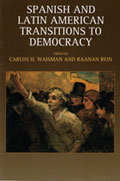
Spanish and Latin American Transitions to Democracy
Edited By: Carlos H. Waisman and Raanan Rein
Published by: Sussex Academic Press, 2005, 246 pp.
This volume compares the Spanish and Latin American “double transitions” to liberal democracy and an open-market economy. Spain’s transitions in the 1960s–1980s have become the paradigmatic case of successful institutional transformation, and thus the standard for the evaluation of the economic and political change in Latin America and Central/Eastern Europe in the 1980s and 1990s.
Even though most Latin American countries have transformed their economies and polities in recent decades, and the outcomes of this transformation have been variable, few of these countries have so far established solid liberal democracies and dynamic open economies. The essays in this book, written by distinguished specialists, examine the different trajectories in Spain and several nations in Latin America, and seek to explain the different outcomes. In the large recent literature on transitions, this is the first systematic comparison between Spain and the Latin American cases.
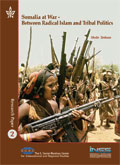
Somalia at War: Between Radical Islam and Tribal Politics
Author: Moshe Terdman
Published by: The S. Daniel Abraham Center for International and Regional Studies and The Institute for National Security Studies, 2008, 101 pp.
This is an important publication on a topic that still receives surprisingly little attention from scholars of the modern history of the Middle East and Africa. This essay incisively analyzes how under-developed Somalia was transformed into one of the primary battlefields in the global "war on terror." Civil wars in Somalia are not a new historical phenomenon. However, the emergence of radical Islam in Somalia has altered the political balance in this small state in the eastern Horn of Africa. This monograph expands the current body of empirical knowledge provided by existing works on the subject. Developments in Somalia in recent years have fallen into a category that is similar to the political dynamic in Afghanistan and Iraq. The Somali regime has been toppled by external military intervention which led to foreign occupation and ended in the emergence of a weak central government that has not been able to control its sovereign territory and quell armed opposition. The post-intervention regime in Somalia has been challenged by both internal and external threats. The unprecedented active involvement of foreign players in Somali domestic affairs, the immediate local, regional, and global circumstances at hand, and the critical role radical Islam has played in the conflict have turned Somalia into one of Africa's tragic stories.
The goal of this monograph is to explain how the immediate local, regional, and global circumstances have currently transformed Somalia into one of the principal battlefields between regional powers, the U.S., and al-Qa'ida. The monograph begins with an analysis of the social and historical roots of the current conflict in Somalia, and then explores how the conflict has developed, the role of radical Islam, and the intervention of external regional and global players in the conflict and their respective motives. This thoughtful monograph certainly adds to the growing body of knowledge on al-Qa'ida and its evolving relationship with the peoples and states in the Horn of Africa. The author, Moshe Terdman, provides a convincing and wellbalanced portrait of a society caught between the strains of tribal tradition, longstanding feuds, and the fresh and threatening wave of Islamic radicalism.
I would like to thank my hardworking colleagues who enabled this publication to come to fruition; first and foremost, the author himself, Moshe Terdman who patiently bore the brunt of our editorial demands. It is my pleasure to thank the directors of both the Daniel Abraham Center and the Institute for National Security Studies, Raanan Rein and Zvi Shtauber, for their encouragement and sponsorship. Thanks also go to Talma Kinarti, the Assistant Manager of the Daniel Abraham Center and Ilan Diner, our research Assistant, who were helpful in a variety of organizational tasks.
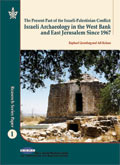
The Present Past of the Israeli-Palestinian Conflict: Israeli Archaelogy in the West Bank and East Jerusalem Since 1967
Authora: Raphael Greenberg Adi Keinan
Published by: The S. Daniel Abraham Center for International and Regional Studies, 2007, 57 pp.
As in many contested regions, the past is always present in the Middle East conflict. Here, however, the past has far greater weight than any other region, and archaeologists are those that give the distant past a palpable, physical expression. In this sense, archaeology and politics have always been intertwined. If Jewish and Israeli archaeology has been characterized, at times, by its national-historical mission, the same is true for its Palestinian counterpart. Thus, archaeology has been mobilized either to strengthen the bond between the Jewish people and the Land of Israel or to deny or ignore such a relationship. Without detracting from its objective scientific value, archaeology contributes to the elaboration of new collective identities based on new narratives of the past.
In the context of the Israeli-Palestinian conflict, each and every excavation has the potential to acquire political overtones and to sow the seed of controversy. The study offered here is a survey of the work conducted by Israeli archaeologists in the West Bank and East Jerusalem since 1967. The compilation of such a database is of tremendous importance for both researchers and those decision-makers who might be in a position to influence the future relations between Israelis and Palestinians and decide the fate of archaeological sites and finds in these regions.
As Raphael Greenberg and Adi Keinan emphasize, "[t]he archaeological wealth revealed here should [also] engender discussion regarding protection, preservation, future research and development in the future Palestinian state." Greenberg and Keinan focus their attention on the products of Israeli archaeology in the West Bank and East Jerusalem. They do not deal here with the threats posed to the sites themselves as a result of the conflict: whether it is widespread destruction and looting of sites by Palestinian villagers or the damage caused to sites of all kinds— including synagogues, churches, and monasteries—by rapid development in all parts of the territory. Neither do they provide a detailed examination of the policies of the Palestinian authorities in the realm of archaeology or the activities and discussions of these issues in Palestinian universities. These topics warrant academic research of their own. With this study we inaugurate the series of Research Papers of the S. Daniel Abraham Center for International and Regional Studies. This series hope to contribute to academic and public discussion on different aspects of inter-ethnic and inter-religious conflicts around the world and in our region in particular.
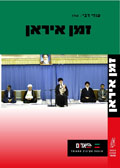
זמן איראן
עורך: עוזי רבי
הוצאת הקיבוץ המאוחד, 2008, 200 עמודים.
אף שחלפו כמעט שלושה עשורים מאז המהפכה האסלאמית, עדיין ניכר קושי רב בהסקת מסקנות נחרצות על המתחולל באיראן מבית ועל דרך התנהלותה בזירות החוץ. איראן היא ללא ספק מקרה מרתק וייחודי בנוף המזרח תיכוני, ולאחרונה היא ניצבת בעין הסערה. בה בעת מרותק המתבונן להתפתחויות דרמטיות ברחבי הרפובליקה האסלאמית של איראן. אוכלוסייה בת למעלה מ-70 מיליון נפש; דור צעיר ודעתני שמשמיע השגותיו בקמפוסים ברחבי איראן; השימוש הנרחב באינטרנט; הידיעות בדבר חיכוכים ומחלוקות בהנהגה הדתית מציבים סימני שאלה לגבי כווני ההתפתחות העתידיים של איראן.
זמן איראן נכתב מתוך גישה ביקורתית אך מלומדת, שבגין חסרונה בשיח הציבורי מסומנת איראן כאן ובאחדות ממדינות המערב ב"שחור לבן". זמן איראן רואה אור בעיצומן של התרחשויות משמעותיות במזרח התיכון, שאיראן ניצבת במרכזן. ספר זה, פרי עבודתם של חוקרים ישראלים, מספק הערכה מאוזנת יותר לנעשה בתוך החברה האיראנית, מאזן הכוחות המתקיים בה ומגיב לשאלת מיקומה של איראן במערכת האזורית.
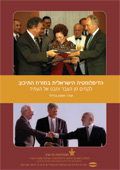
הדיפלומטיה הישראלית במזרח התיכון: לקחים מן העבר ומבט אל העתיד
עורך: אמנון ברזילי
מרכז דניאל אברהם ללימודים בינלאומיים ואזוריים בשיתוף עם המכון האוניברסיטאי לדיפלומטיה ושיתוף פעולה אזורי
כאשר אנו עוסקים בדיפלומטיה ובמהלכים דיפלומטיים במזרח התיכון, כפי שהם נתפסים בציבור הרחב, אנו מזהים שתי אסכולות מרכזיות, המשקפות שתי תפיסות עולם שונות ומנוגדות. הראשונה, גורסת שמדינת ישראל ושכניה הערבים נעים במעגלים שמתרחקים ומתקרבים, אבל בסופו של דבר תימצא ההזדמנות הנכונה; תתגלה הפירצה, יותווה המהלך הדיפלומטי הנכון שבאמצעותו ניתן יהיה להגיע לפתרון. כלומר, צריך רק למצוא את הדרך הנכונה וליזום את המהלך הדיפלומטי, והדיפלומטיה כבר תסלול את הדרך לפתרון הקונפליקט עם השכנים. הגישה השניה הרבה יותר פסימית. לפיה, המאמצים הדיפלומטיים עקרים ביסודם, אין למדינת ישראל בפועל שותפים אמיתיים, אין עם מי לדבר.
הפתגם המוכר אומר: “It takes two to tango”, אלא שבריקוד הטנגו שלנו, אנו מוצאים את עצמנו לבד, ללא שותף. הגישה הזאת גורסת שהכוחות החיצוניים אולי יכתיבו בסופו של דבר את המהלכים, ויכפו אותם על שני הצדדים. כך או כך, בסקירה לאחור של שלושת העשורים האחרונים, ניתן לסכם ולומר שאנחנו שבעי אכזבות מהדיפלומטיה הישראלית במזרח התיכון. מפעם לפעם מתרחשים דברים באזור, ומתעוררת תחושה שהנה, אנו כמעט נוגעים בשלום, אבל תמיד אחר כך, מתעוררים לאכזבה חדשה. כשההזדמנות חומקת, עולות כמובן הרבה תהיות ושאלות קשות: מה ניתן היה לעשות אחרת? מה עלינו ללמוד מהשגיאות שנעשו? מה נוכל לעשות בעתיד באופן מוצלח וטוב יותר? כמובן שנעשו טעויות והוחמצו הזדמנויות. האם ניתן ללמוד מהשגיאות הללו? כיצד ומה עלינו לשפר כדי שלא תחזורנה בעתיד?
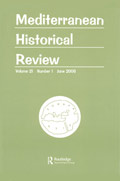
Mediterranean Historical Review
Since its Establishment in 1986, the Mediterranean Historical Review has becoming a leading journal in this field. Applying a multi-period perspective, it offers scholarly articles, testimonia, and book reviews, whose interests span from antiquity to the modern era. The Mediterranean Historical Review emphasizes interconnections and influences within the Mediterranean context, as well as questions of comparative and comparable nature.
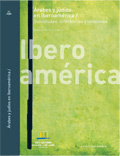
Árabes Y Judios en Iberoamérica: Similitudes, diferencias y tensiones
Edited By: Raanan Rein
Published by: Las Tres Culturas, 2008, 460 pp.
Según un sondeo realizado en 1992 en Argentina, árabes y judíos eran considerados como los grupos menos integrados en la vida del país por un tercio de los entrevistados, mientras que para un porcentaje aún mayor constituían un pueblo separado. Estas respuestas reflejan la persistencia de estereotipos sobre estos dos grupos de inmigrantes semitas, no sólo en Argentina sino en todo el continente.
Las primeras representaciones de árabes y judíos en Iberoamérica fueron anteriores a la llegada de inmigrantes de ese origen, algunas basadas en antiguas obras literarias e históricas de España, de modo que existían ya imágenes ampliamente difundidas sobre estas comunidades antes de que comenzaran a llegar desde África del Nor te, el moribundo Imperio Otomano o la Europa oriental al continente. Las Américas –Nor te y Sur– parecían prometer prosperidad y un futuro mejor, convir tiéndose así en el hogar de cientos de miles de árabes y judíos, la mayor par te llegados entre 1870 y 1930.
Con este volumen y con el seminario que le sir vió de base, la Fundación Tres Culturas ha querido contribuir a subsanar la relativamente poca atención que se ha prestado al estudio de los distintos aspectos de la experiencia semita en Iberoamérica. Sin obviar la existencia de tensiones entre unos y otros, también es cier to que, por lo menos en la primera mitad del siglo XX, antes del establecimiento del Estado de Israel, estas comunidades compar tieron vivencias similares y, en muchos casos, tuvieron intereses comunes ante sociedades receptoras en las que su posición no estaba claramente definida.
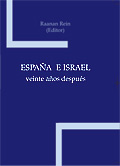
España e Israel veinte años después
Editor: Raanan Rein
Dykinson S.L. A collection of papers presented in a conference: "España e Israel veinte años después: de cara al pasado y al futuro"
Tel Aviv University, March 2006
In commemoration of the 20th anniversary of the establishment of diplomatic relations between Israel and Spain
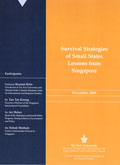
Survival Strategies of Small States - Lessons from Singapore
Lectures given by: Dr. Tan tay Keong, Prof. Raanan Rein, Dr. Avi Beker and Ambassador Itzhak Shoham

